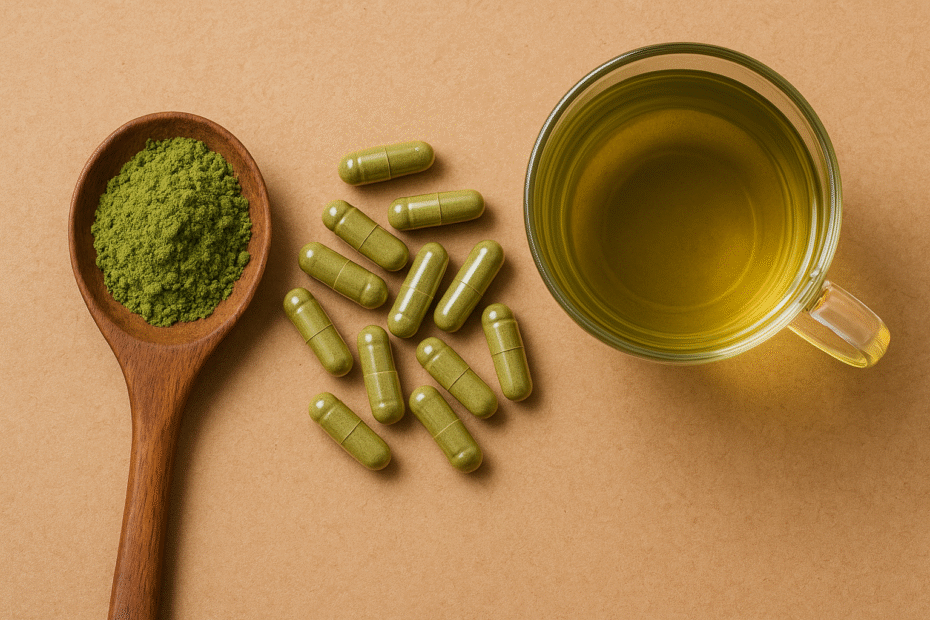Moringa oleifera, often called the “miracle tree”, is one of the most nutrient-dense plants on the planet. Originating from India and widely cultivated in Africa, Asia, and South America, its leaves, seeds, and pods have been used in traditional medicine for centuries. Today, Moringa is celebrated worldwide for its immunity-boosting, blood sugar-regulating, and energy-enhancing properties.
Let’s explore how to make Moringa a part of your daily wellness routine—safely and effectively.
What Is Moringa?
Moringa oleifera is a drought-resistant tree known for its exceptional nutritional profile. The leaves are particularly prized and are packed with:
- Vitamins: A, C, and E
- Minerals: Iron, potassium, calcium
- Amino acids: All nine essential ones
- Antioxidants: Including quercetin and chlorogenic acid
According to the National Institutes of Health, Moringa’s combination of nutrients and phytochemicals makes it an effective natural remedy for many health conditions.
Key Benefits of Moringa
1. Strengthens the Immune System
Moringa leaves are high in vitamin C and antioxidants, which help fight free radicals and reduce inflammation. Regular consumption can strengthen your body’s natural defenses against illness.
2. Helps Balance Blood Sugar
A study published in the Journal of Food Science and Technology showed that diabetic participants who took Moringa experienced a significant reduction in post-meal blood glucose levels. This makes it a natural aid for people managing blood sugar concerns.
3. Increases Natural Energy
Thanks to its high iron and magnesium content, Moringa improves oxygen transport and energy production in cells—giving you a steady boost without the crash of caffeine.
4. Supports Cognitive Function
Moringa’s antioxidants may reduce oxidative stress in the brain, supporting memory, focus, and clarity. Some studies suggest it may even help reduce symptoms of anxiety and depression.
5. Improves Skin and Hair Health
The vitamins and minerals in Moringa promote collagen production and healthy hair growth. Many skincare brands are now incorporating Moringa oil due to its anti-aging properties.
Best Ways to Use Moringa Daily
1. Powder
- Dosage: 1–2 teaspoons per day (start with ½ tsp)
- Use it in: Smoothies, oatmeal, yogurt, soups
2. Capsules
- Dosage: Typically 500–1000 mg per day
- Best for: People who prefer a tasteless option
3. Tea
- Benefits: Hydration and antioxidants
- Tip: Brew with lemon or ginger for enhanced taste
4. Fresh Leaves
- Use in curries, salads, or stews
- Highly nutritious but less widely available
Important: Always start with a small dose and monitor your body’s reaction. If you are on medication or pregnant, consult your doctor first.
Safety Tips and Best Practices
- Start small: Introduce it gradually to avoid digestion issues
- Avoid during pregnancy: Some compounds may not be safe
- Store properly: Keep Moringa powder in a cool, dark place
- Choose quality: Look for organic, third-party tested products
Conclusion: Make Moringa Part of Your Routine
Moringa is more than just a supplement—it’s a natural powerhouse that can support your health on multiple levels. With consistent, daily use, you may notice improved energy, better blood sugar control, and enhanced overall wellness.
Give it a try: Add a scoop to your smoothie or start with a simple tea. Just a few minutes a day can make a long-term difference in your well-being.
Frequently Asked Questions (FAQ)
1. Can I take Moringa on an empty stomach?
Yes, but if you have a sensitive stomach, try taking it with food.
2. How long before I see results?
Most users report noticeable benefits in 1 to 2 weeks of daily use.
3. Is it safe for kids?
Moringa can be used in small amounts, but always consult a pediatrician first.
4. Will it interact with medication?
Yes, especially with diabetes or blood pressure drugs. Ask your healthcare provider.
5. Can I take Moringa long-term?
Yes. When used in recommended doses, Moringa is safe for long-term use.
